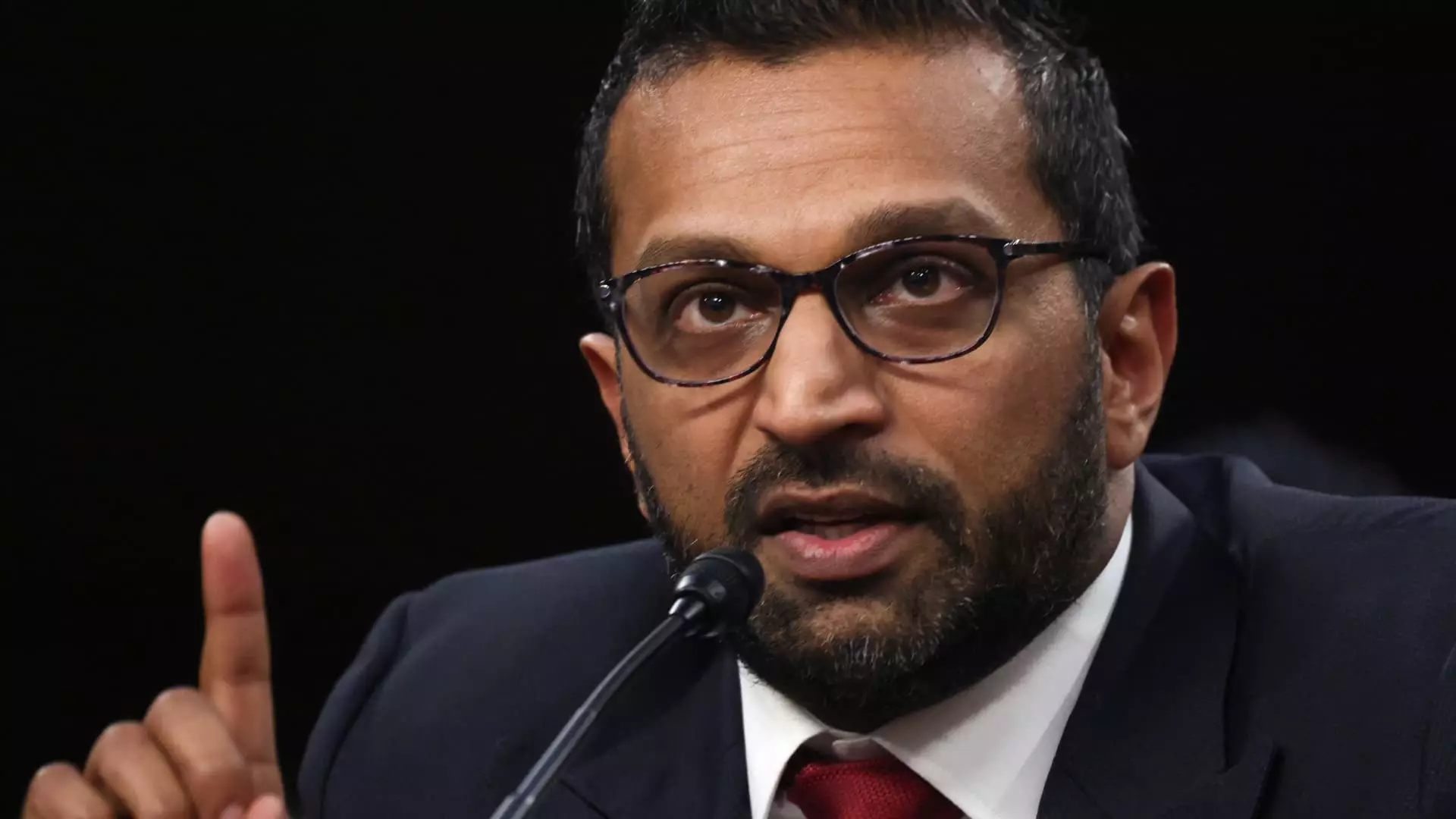The recent developments surrounding the Bureau of Alcohol, Tobacco, Firearms and Explosives (ATF) have sparked intense discussions about the future of gun regulation in the United States. Kash Patel, the newly appointed FBI director, is reportedly set to step into the role of acting head of the ATF, a move that raises eyebrows and concerns about the agency’s direction. The unique arrangement, which places Patel—a staunch ally of former President Donald Trump—at the helm of both organizations, is not just a bureaucratic maneuver; it symbolizes a shift in how the federal government might approach firearm regulations amid rising political tensions.
Patel’s anticipated swearing-in for the ATF role closely follows his confirmation as FBI director. This dual leadership role places him in control of the ATF, which is responsible for the enforcement of federal laws regarding firearms and explosives. Given the ATF’s charged history with conservatives, many observers are questioning not just Patel’s qualifications, but the implications of his leadership style on ongoing efforts to manage gun violence and enforce gun laws.
In recent years, the ATF has been at the center of heated debates, particularly as it has been tasked with implementing stricter regulations on ghost guns and adapting legislation to ensure more robust background checks across the nation. The urgency of these measures is underscored by statistics that indicate escalating gun violence rates, making the ATF’s role vital in promoting public safety.
The political backdrop to Patel’s appointment paints a complex picture. Traditionally, the ATF has been a focal point for conservative criticism, particularly in relation to what some perceive as an overreach into the rights of gun owners. During his tenure as FBI director, Patel may bring a radical overhaul that aligns with right-wing ideology, potentially undermining efforts aimed at enhancing public safety through substantive firearm regulations.
Moreover, the recent ousting of ATF chief counsel Pamela Hicks adds another layer of controversy. Hicks had been a long-serving attorney within the Justice Department, and her dismissal, attributed to alleged targeting of gun owners, signals a concerning precedent. This kind of politically charged turnover raises critical questions about the agency’s ability to maintain impartiality and uphold its accountability.
The appointment of Patel has drawn immediate reactions from both gun rights advocates and gun control organizations. The Brady Campaign, a prominent gun safety group, has swiftly criticized Patel, branding him a “known gun rights extremist.” This label points to broader anxieties regarding the administration’s commitment to safety regulations at a time when public sentiment is increasingly in favor of more stringent gun control measures.
Conversely, gun rights groups like the Gun Owners of America have heralded Patel’s confirmation as a major win for advocates of the Second Amendment, viewing it as an opportunity to dismantle regulations seen as oppressive. This stark dichotomy in response illustrates not just polarized views on gun legislation, but also highlights the turbulent landscape in which the ATF operates.
The Future of the ATF Under Uncertainty
As the ATF prepares to transition under Patel’s influence, the agency faces an uncertain future. The inability of both the Democratic and Republican administrations to confirm a stable ATF director since 2015 suggests a deeper systemic issue affecting the agency’s operational effectiveness and credibility. The role of the ATF has never been more critical, especially with increasing public discourse surrounding gun rights and violence.
Kash Patel’s leadership could redefine the agency, reinforcing opposition to regulatory measures or, conversely, pushing for innovative solutions to curb gun violence. The implications of this forthcoming leadership change extend beyond just agency dynamics. They touch on broader themes of governance, individual rights, and the balance of power between personal freedoms and public safety.
Kash Patel’s expected leadership at the ATF is emblematic of a tumultuous era in American politics where gun rights and public safety intersect in complex ways. Whether this appointment will lead to advancements in gun regulation or foster further discord will depend largely on how Patel navigates the intricacies of his dual roles. As firearms legislation continues to evolve and the nation grapples with its identity on issues of crime and safety, the agency’s direction under Patel becomes a pivotal point of analysis for policymakers and citizens alike.

Leave a Reply